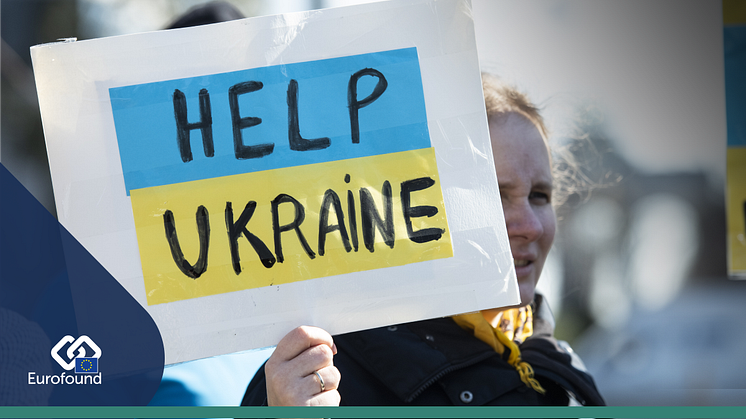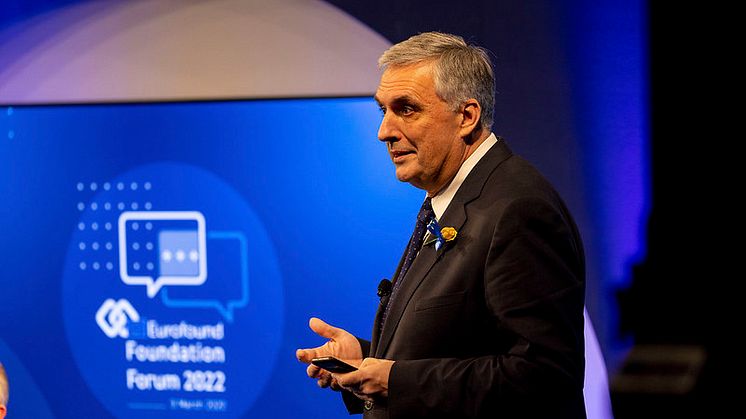
News -
Eurofound survey finds 70% of respondents supporting economic sanctions on Russia
Over 70% of respondents that participated in the latest round of Eurofound’s online survey agree with the imposition of economic sanctions on Russia, with two-thirds feeling that more stringent sanctions should be imposed. Support for economic sanctions is particularly high among respondents in Scandinavian countries, the Baltic states, Romania, Poland and Ireland. These findings are part of a new landmark EU survey, the results of which are to be published in July.
Broad sentiment in favour of economic sanctions on Russia, military support and humanitarian aid to Ukraine, and practical measures such as providing housing to refugees were expressed by respondents to the Eurofound Living, working and COVID-19 survey, which was carried out in April 2022. The survey asked over 40,000 people living in Europe their views on a variety of issues, including the war in Ukraine.
76% of respondents expressed high or very high concerns about the war, with higher rates recorded in some of the countries sharing borders with Russia, such as Finland, Poland and the Baltic states, as well as southern Mediterranean countries and Ireland. 80% of respondents agreed with the EU and national approach to providing housing for refugees and more than 84% of respondents supported the EU and its Member States in supplying humanitarian aid to Ukraine.
On the issue of military support, 66% of respondents approve of the EU’s military support to Ukraine. The picture at national level was varied – in Poland, the Scandinavian countries, the Baltic states, Malta and Ireland, the majority of the respondents believe that the EU should provide more military support to Ukraine. Conversely, in Italy, Greece, Slovenia, Slovakia and Bulgaria, 50% or more of the respondents believe that the EU has done too much in this area.
EU citizens are concerned about increasing energy costs: 28% of those surveyed think that they will have problems in paying energy bills, for gas or electricity, while 31% are concerned about the increasing cost of petrol. However, one of the largest overriding concerns for policymakers is that Europe’s solidarity and cohesion may be threatened by the impact of the rising wave of disinformation campaigns being waged across the world, some of which have pivoted from COVID-19 directly onto the war in Ukraine.
For example, 24% of those surveyed who use traditional media as their main source of information do not support European sanctions against Russia, while this share increases to 39% among those who use social media as their main source of information, and 45% among the those who have not been vaccinated against COVID-19.
Speaking on the publishing of the Ukraine specific findings, Eurofound Head of Unit for Social Policies Massimiliano Mascherini said ‘Support for Ukraine is strong and widespread throughout Europe, with the majority of citizens in agreement with the array of actions taken so far, including sanctions on Russia. Policymakers should, however, address the immediate economic and social concerns of citizens to consolidate their trust in institutions. Without this, there is a danger that support and solidarity for EU actions in Ukraine will come under serious threat.’
More findings on Ukraine:
Read more on the Ukraine results of the survey in the dedicated blog here.
View our topic page on Ukraine here.
Factsheet on broader findings from the survey:
A Factsheet on the broader survey results will be available in July, sign-up to receive it here.






